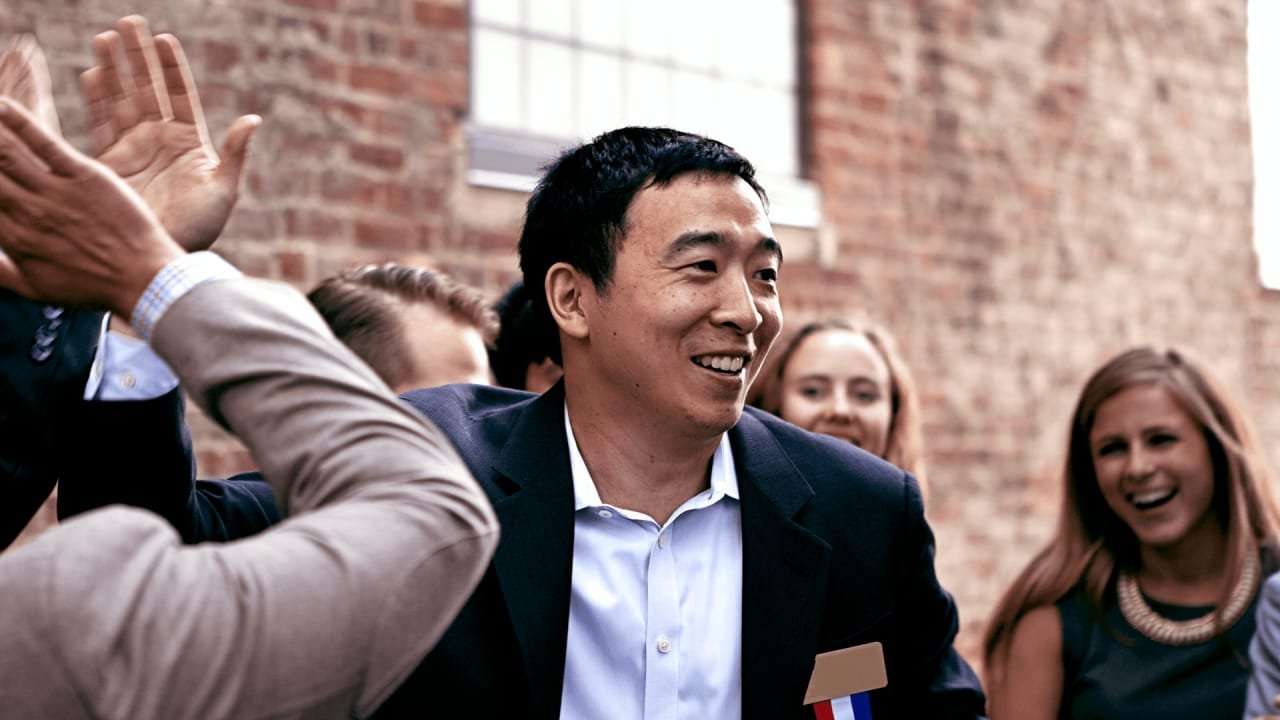Andrew Yang has a one word answer for why he’s running for president in 2020. It’s not Trump, or healthcare, or fame. It’s automation: the way in which machines are taking away jobs already and are set to take away many more in the future . “To me, this is an elephant in the room that’s stomping around and making a mess and everyone seems to be ignoring it,” he says.
Yang, a New York entrepreneur, sees machines taking away employment from retail store assistants, truck drivers, and call center workers–some of the most numerous job categories in the country–and before too long. Self-driving trucks are already rolling out of R&D labs and artificial intelligence is gunning for customer service jobs. In the not too distant future, Yang sees millions of Americans without the means to generate income and live a decent life.
Yang, the founder of Venture for America, a fellowship program for young entrepreneurs, may be a long-shot for president. But he does have a clear, arresting message. He is the automation candidate. Moreover, he has a plausible–though costly–solution to the problem. He would give every American who wanted it a basic income: $1,000 a month.
Basic income is an increasingly popular concept, both on the left and right, and particularly in Silicon Valley. Hillary Clinton toyed with the idea in 2016 before rejecting it as overly idealistic. Bernie Sanders has talked approvingly of it. But Yang is the first to actually run on it. As a long-shot candidate, perhaps it’s easier to propose something that most formal politicians think is impossible. Paying $1,000 a month to every American would cost at least $2 trillion a year and the burden would be carried by everyone, not just the well-off.
To pay for his plan, Yang proposes a value added tax–sort of like a sales tax, except it’s collected not only at the retail sales stage, but at any part of the production chain where goods are transferred. Many other countries have VATs instead of sales taxes, seeing them as a fairer way to tax commerce than our model, which puts all the burden on consumers at the end of the value chain.
Related: A Universal Basic Income Is The Bipartisan Solution To Poverty We’ve Been Waiting For
Yang argues that a VAT is a better way of raising revenue in the extreme-automation age than income taxes–because well, you need people working jobs and generating incomes before you can have income taxes. “Income taxes are very poor at generating income from automation because the gains are realized by technology companies that are experts at not paying taxes,” he says.

lddiamond on March 30th, 2018 at 17:31 UTC »
If everyone earned 1k more, wouldn't that just raise the cost of living for everyone?
plantman01 on March 30th, 2018 at 17:06 UTC »
Would this burden also fall upon the middle class?
Peacemaker_58 on March 30th, 2018 at 16:10 UTC »
1) do I get paid this on top of my current income?
2) where does he think the money will come from?